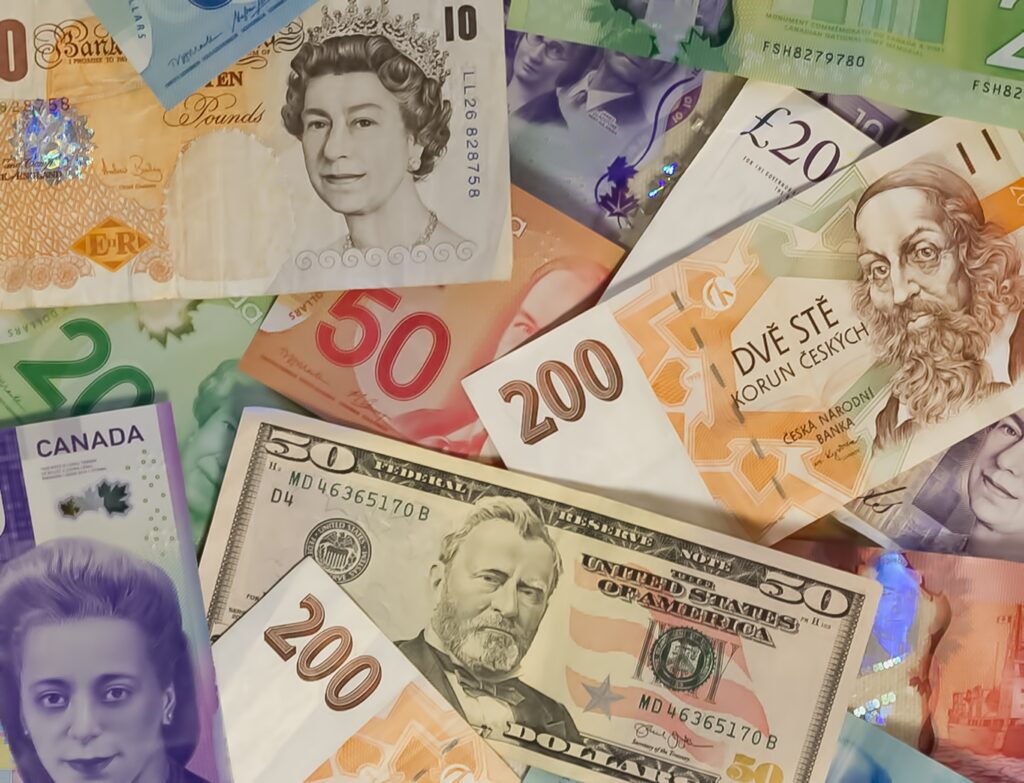
While staycations became all the rage during the coronavirus pandemic, the trend for holidaying within the boundaries of the UK remains highly prevalent.
In fact, while some 1-in-3 Brits are planning to go on at least one holiday over the course of the next 12 months, some 73% are likely to opt for staycations in the UK due to financial pressures, rampant inflation and the on-going cost-of-living crisis.
While this makes sense on at least some financial level, it ignores the falling cost of international and air travel in 2023. Of course, it’s also possible to reduce the cost of travel by accessing the very best currency exchange rate when travelling abroad, although this is a challenging pastime that requires careful thought and research.
I’ll explore this more in the article below, while asking how you can access the best exchange rate in real-time and enjoy cost-effective international travel in the summer of 2023 (and beyond!)
Firstly – What Factors Influence Currency Exchange Rates?
Let’s start by appraising the factors that influence real-time currency exchange rates, many of which are macroeconomic in nature and remain the subject of considerable scrutiny in the current economic climate.
- #1. Inflation: Let’s start with the basics; as inflation has a direct impact on currency values and currently remains disproportionately high in the UK at 6.8%. In simple terms, high rates of inflation that are above the central bank’s target of 2% tend to gradually erode the purchasing power of currencies, creating lower demand within international markets. Conversely, lower inflation rates underpin higher demand and increased currency valuations, with this a central tenet of any forex for beginners course.
- #2. Interest Rates: Theoretically speaking, interest rates enjoy an inverse relationship with inflation, which is why governments often hike the former in order to combat inflation and underpin quantitative easing programs. When interest rates are high, they also increase the fundamental value of currencies and offset the loss of purchasing power caused by inflation. So, countries with a higher base rate of interest are likely to see their currencies maintain a high core value.
- #3. Government Debt and GDP Values: Government debt describes national or public levies that may be owned for a governing party, with this measured by each nation’s unique debt-to-GDP ratio. We’ve seen this metric increase exponentially across the globe in recent times, with the UK’s own ratio having peaked above 100% for the first time since 1961. This can also trigger higher inflation and lower the purchasing power of currencies, so it’s having a dramatic impact in the wake of the coronavirus pandemic.
How to Identify and Find the Best Currency Exchange Rates
Now that you have an understanding of what unique factors impact currency exchange rates, the next step is to learn how you can identify the best value rates in real-time. Here are a few considerations to help you on your way!
1 Consider the Overall Cost of Exchange:
While the exchange rate is the single most important metric when comparing the marketplace and before you exchange your local currency, it’s not the only one. In fact, there’s a broader total cost associated with exchanging currency, with this comprising delivery charges and any commission charged by the service provider. Be sure to factor this into your decision to calculate the total cost of exchange as accurately as possible.
2 Pay With Your Debit Card:
Regardless of where you ultimately choose to exchange your currency and the total cost incurred, I’d seriously recommend using your debit card to complete any transaction. The reason for this is simple; as credit cards are likely to incur additional fees that increase the cost and undermine any potential savings. You could also use a bank transfer, of course, but this comes with much less protection when converting funds.
3 Check for Currency ‘Buyback’ Offers:
In many cases, currency exchange providers will offer competitive ‘buyback’ offers and rates for any amount of currency that you don’t use while on your travels. This enables you to exchange funds with far greater freedom and peace of mind, safe in the knowledge that you won’t be left with excess foreign currency that’s either unusable or subsequently has to be exchanged for an additional charge when you return home. So, try to prioritise service providers that offer relevant buyback offers where possible, as this can deliver additional savings and create relatively generous deals in the marketplace.
